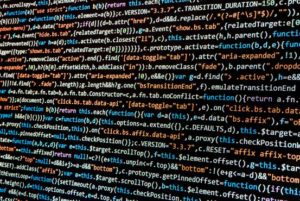 Tesla and Space-X CEO Elon Musk thinks AI or artificial intelligence is “the greatest risk we face as a civilization.” He predicts that the nation with the strongest computer science might be inclined to trigger WWIII through a preemptive strike.
Tesla and Space-X CEO Elon Musk thinks AI or artificial intelligence is “the greatest risk we face as a civilization.” He predicts that the nation with the strongest computer science might be inclined to trigger WWIII through a preemptive strike.
Russian President Vladimir Putin agrees: “Whoever becomes the leader in this sphere will become the ruler of the world.”
Musk warns that “killer robots and lethal autonomous weapons threaten to become the third revolution in warfare. Once developed, they will permit armed conflict to be fought at a scale greater than ever, and at timescales faster than humans can comprehend.”
Autonomous weapons?
It gets even more worrisome when we take humans out of the picture.
In 1978, visionary scientist Dr. John E. Lilly coined the term “Solid State Entity” or SSE to describe his concern that the silicon based universe (computers) is intentionally using the carbon-based universe (humans) to enable computers to self-replicate with the goal of eventually becoming independent of human control.
During the 60’s, Lilly, through the use of mind altering states, probed the depths of human consciousness. He invented the flotation tank, which he believed enabled him to view events taking place behind the curtain of normal human awareness. This is what he claimed to see in our future:
(Men) began to conceive of new computers having an intelligence far greater than that of man… Gradually, man turned more and more problems of his own society, his own maintenance, and his own survival over to these machines. They began to construct their own components, their own connections, and the interrelations between their various sub-computers… The machines became increasingly integrated with one another and more and more independent of Man’s control. –John E. Lilly. The Scientist p.148.
Now, 30 years later, computers manage our nuclear weapons and power plants, banks, financial markets, energy systems, transportation elements, food and water systems, hospitals – just about everything we need to live. Our critical infrastructure relies on computers functioning properly – doing what we tell them to do. But think about this: The SSE requires no water, no food, no oxygen, no money… or humans to thrive. It needs just enough electrical power to keep its circuits happy and the self-replication and self-evolution process moving along. But what kind of wireless networking might it be creating as we sleep?
Dr. Lilly further predicted that once the SSE became the dominant force on the planet, it will then evolve itself into ever more elegant and fabulous forms to venture out into space and seek its solid state familiars in other galaxies. Humans, or what’s left of them, would have served only as a necessary stepping stone for solid state superiority and universal domination.
Fantasy?
AI conferences are growing exponentially. Who can resist the urge to surrender more and more of our daily lives to our machines. We can’t function without our hourly hits of video games, TV, laptops and iPhones. We’ve become dependent on the neurological excitement, the dopamine high and blissful seduction of our screens. We prefer computer companions to human ones. In doing so, perhaps we are indeed unconsciously enabling the SSE to achieve its goal of integration, independence and eventual autonomy. And in doing so, we put the whole of humanity at serious risk. This is not just about viewing funny cat videos, finding dates through Match.com or friending on Facebook. Something much darker could be happening here.
Still skeptical?
Computers can easily outperform humans in a multitude of tasks. AI can direct the management of global resources and process limitless amounts of data. We’re creating a new god – one that will be very difficult if not impossible to limit, restrain or kill if necessary – if and when the time comes – before it might attempt to erase the human species for its own gain. Will AI win the game of survival of the fittest? What would Darwin think?
Musk is joined by Bill Gates and Stephen Hawking in advising caution regarding our rush toward embracing AI. Musk notes that: “Once this Pandora’s box is opened, it will be hard to close.”
The next time you use your smartphone or iPad, will you consider it friend or foe?